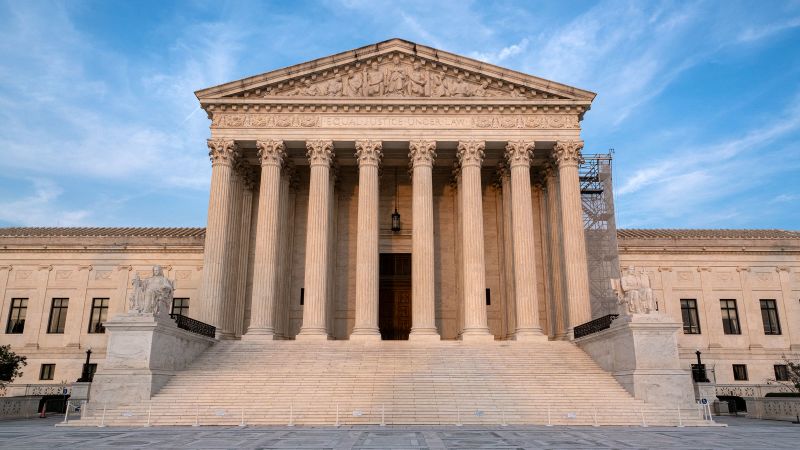
CNN
—
The Supreme Court agreed Friday to decide whether religious affiliated entities like Catholic Charities should be exempt from state unemployment taxes, taking up its first major religion case in more than a year.
The Catholic Charities Bureau in Wisconsin told the high court that the state’s labor department violated the First Amendment when it declined its request for an exemption from the unemployment taxes.
A decision from the conservative Supreme Court could have widespread implications if it sweeps in other types of taxes and religiously affiliated entities, such as hospitals and universities. Forty-seven states and the federal government include exemptions from unemployment taxes for organizations operated for religious purposes, according to Catholic Charities.
“If the petitioners get their way, there’s going to potentially be a fallout in these other areas,” said Patrick Elliott, legal director of the Freedom From Religion Foundation, which filed a brief opposing Catholic Charities in state court.
Wisconsin’s highest court sided with the state in March, ruling that because Catholic Charities didn’t proselytize or participate in traditional religious activities, it didn’t qualify for the religious exemption from the taxes.
“Wisconsin’s rule is both absurd and harmful,” the organization, represented by the Becket Fund for Religious Liberty, told the Supreme Court in its appeal. “The rule takes away resources that would otherwise be used to help the poor and the needy.”
Catholic Charities is the social ministry arm of the Diocese of Superior, a diocese of the Roman Catholic Church. The case also involves four “sub-entities” that mainly provide services to the disabled.
Wisconsin officials countered that Catholic Charities has participated in the state’s unemployment insurance program since 1972. People who benefit from the programs, the state said, “receive no religious training or orientation.” Employees need not ascribe to any faith.
The Supreme Court confronted similar questions in the early 1980s, but it resolved a pair of cases without reaching the underlying First Amendment questions. Since then, the court’s conservatives have expanded protections for religious groups in a series of cases.
In 2022, the court struck down a Maine prohibition against using public money for some students to attend schools that offer religious instruction. Two years earlier, a 5-4 majority ruled that a Montana scholarship program could not exclude religious schools.


